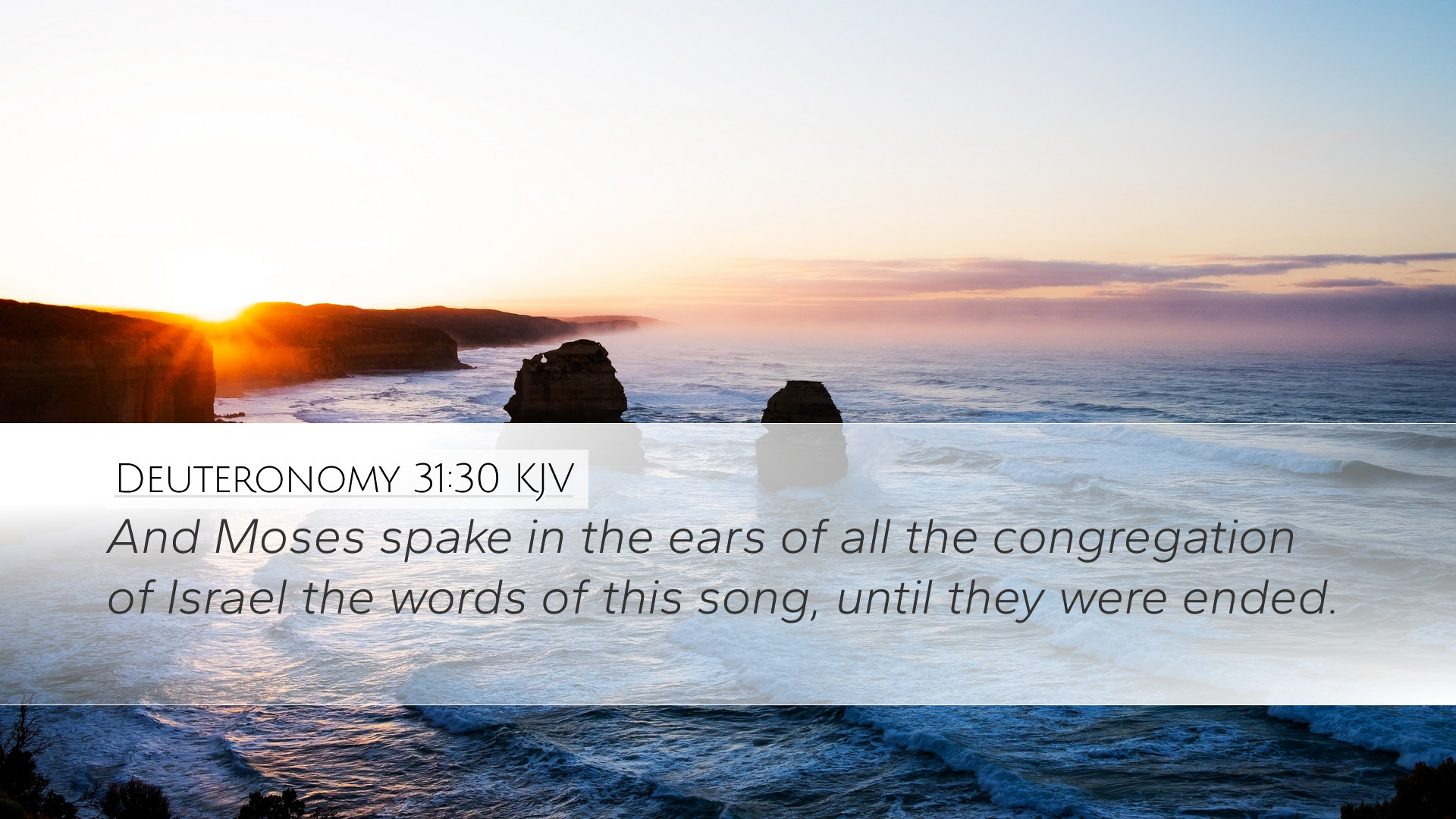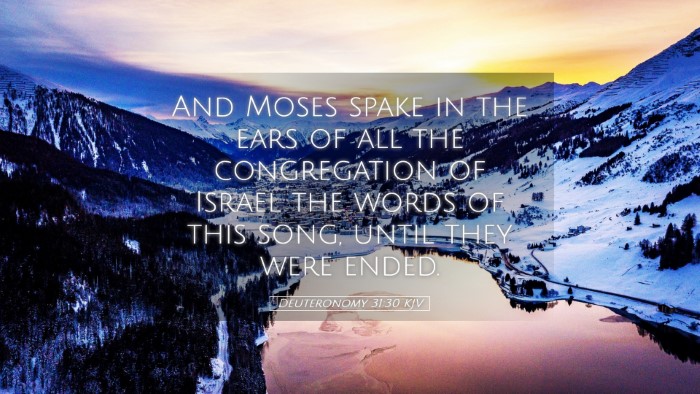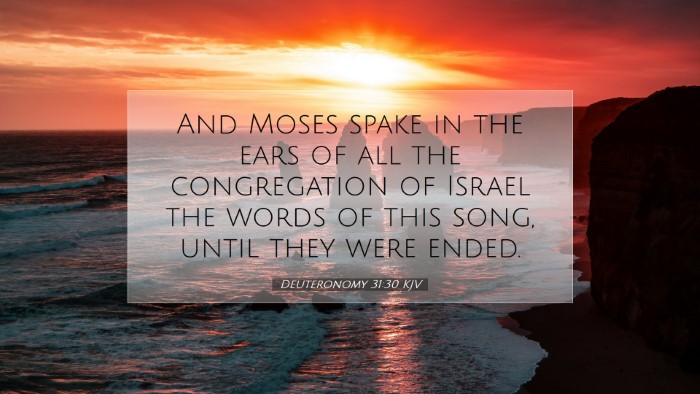Commentary on Deuteronomy 31:30
Verse: "And Moses spake in the ears of all the congregation of Israel the words of this song, until they were ended."
Introduction
This verse marks a significant moment in the journey of the Israelites, as Moses concludes his address to the congregation. It signifies not merely a farewell but also a profound impartation of spiritual truth through the medium of song. The act of speaking in the ears suggests an intimate and direct communication, echoing a deep-rooted culture of oral tradition and collective memory.
The Context of Deuteronomy
Deuteronomy, often viewed as the second giving of the Law, serves as a consolidation of Israel’s journey, laws, and covenant with God before entering the Promised Land. Matthew Henry emphasizes that the book embodies a deep moral and spiritual reflection on both their past experiences and their future responsibilities as God's chosen people. In light of Moses' impending death, his words in this verse carry the weight of both authority and urgency.
The Significance of Song
Singing has traditionally played a vital role in worship and communal memory. As noted by Albert Barnes, the song is not merely entertainment but a vehicle for theological truths and collective identity. Through song, the Israelites can internalize the teachings, making them memorable and impactful.
- Memorization: The song encapsulates teachings that are essential for future generations to remember.
- Reflection: It encourages the community to reflect on God’s faithfulness and their covenant obligations.
- Emotional Engagement: Music engages the heart, making the truths more personal and impactful.
Moses as the Authoritative Voice
In this moment, Moses' role transitions from leader to a prophet who speaks on behalf of God. Adam Clarke points out that Moses’ authority stems from his unique relationship with God and his experiences. His song represents a prophetic declaration that warns, instructs, and reminds the people of their covenant with the Lord.
Leadership Lessons from Moses
Moses' approach in this passage offers several insights for contemporary leaders:
- Authority and Responsibility: Leaders must recognize the weight of their words and the necessity to prepare their followers spiritually and morally.
- Engagement with Community: Directly addressing the community fosters a sense of belonging and shared purpose.
- Legacy: Leaders are responsible for imparting truth that will carry on beyond their tenure.
The Enduring Nature of Scripture
The song sung by Moses serves as an enduring testament to God’s character and the Israelites' covenant relationship with Him. Barnes remarks that these prophetic songs often served dual purposes: immediate teaching and a future reminder of God’s promises and judgments. As such, they carry prophetic significance as they foreshadow future events in Israel's history.
Theological Themes in the Song
As we delve deeper into the song, several themes emerge that are crucial for theological reflection:
- God’s Sovereignty: The song reiterates God's sovereign rule over Israel's history and their national identity.
- Covenantal Faithfulness: It highlights God's unwavering commitment to His people, even in their unfaithfulness.
- Call to Repentance: Implicit within the song is a call for the people to turn back to God, should they stray.
Application for Today’s Believers
The relevance of Deuteronomy 31:30 transcends its historical context, offering a rich tapestry of lessons applicable to modern believers:
- The Role of Worship: Worship, particularly through song, remains a vital expression of our relationship with God. Believers are encouraged to engage their hearts and minds in this practice.
- Emphasis on Community: Just as Moses addressed the congregation, churches today must prioritize collective teaching and engagement with scripture.
- Legacy of Faith: The importance of imparting faith-values to the next generation is underscored, reminding believers of their role in nurturing spiritual leaders.
Conclusion
Deuteronomy 31:30 serves as a poignant reminder of the power of words and music in conveying divine truth. Through the lens of public domain commentaries, it is clear that Moses' final address is not just a farewell but a clarion call for vigilance, remembrance, and devotion to God. As we consider the implications of this passage, may we be inspired to reflect on our own communal worship and the legacy of faith we pass on to others.


